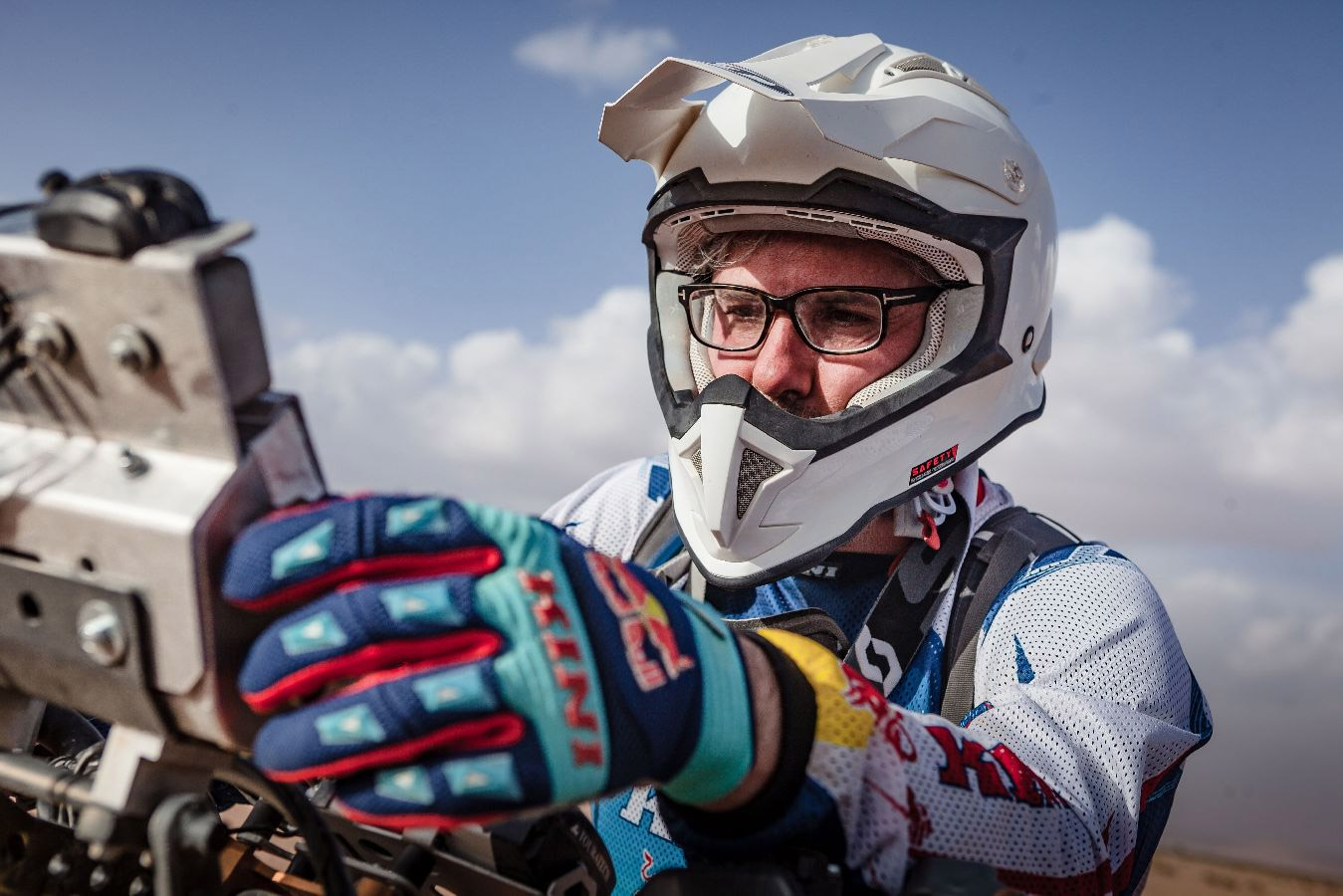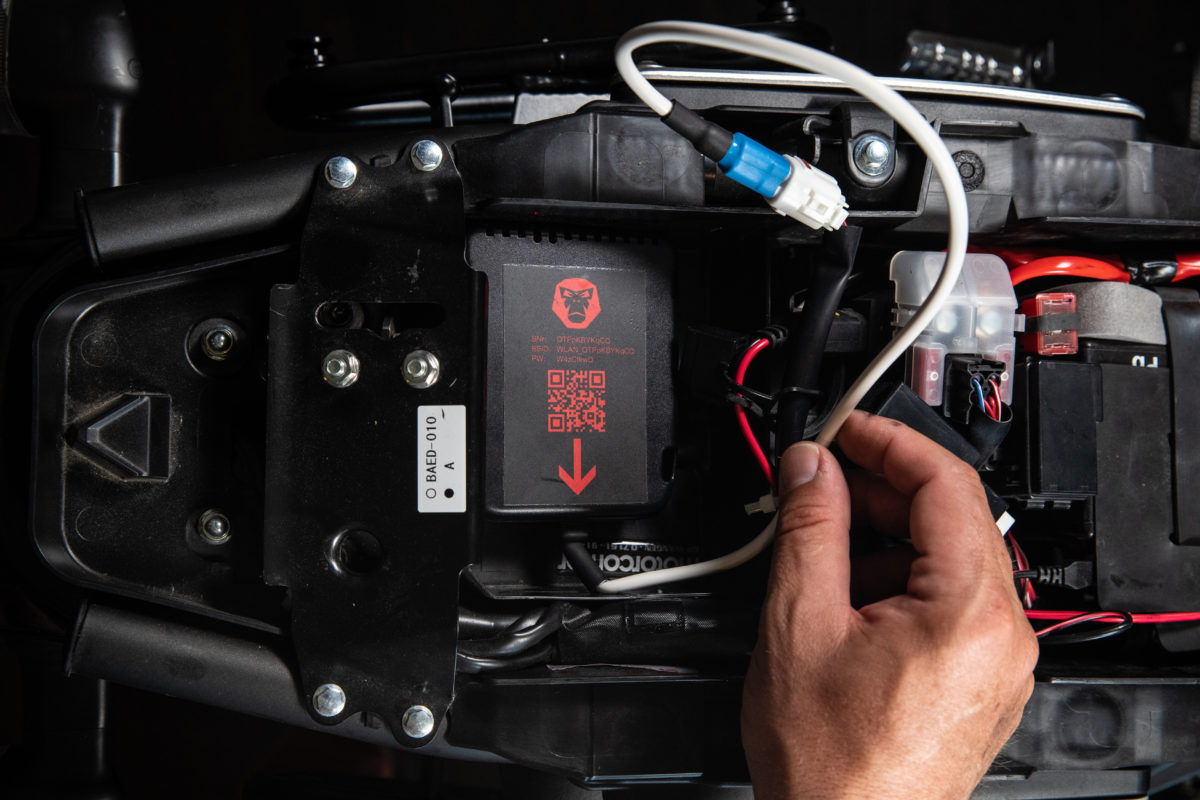
You’ll never ride alone – a lifesaving companion
Success
stories

Stephan Kaufmann knows what it means to fall with a motorcycle
Stephan knows what is is like to have an accident and be totally alone somewhere in the outback. He took part in the Rallye Paris-Dakar, drove 6,000 km through desert, rocks and mud and fell several times. Once so hard he couldn’t continue. What he also knows is the feeling of being rescued, of NOT riding alone, of being safe. A helicopter came and picked him up. Thanks to RideLink, a technical device that helps people to help you – based on IoT and GNSS signals.
30,000 accidents with motorcycles per year in Germany
700 of these are deadly. 27% happen without the input of third parties, only because of improper driving. These are too many. Stephan and his team have the mission to increase passive safety of bikers. This includes actions after an accident: e-call, breakdown service and anti-theft solution. The dongle inside the device detects whether there was an accident and how serious it was, an e-call is set off. The persons from the emergency centre are notified and call the driver. If he or she answers – good, if not they send an ambulance. Via a button, the breakdown service can be contacted manually.

Your riding buddy underneath the saddle
RideLink combines hardware and software. The device links your riding data via Wi-Fi to the corresponding app and via LTE to the backend of Stephan and his team. Thanks to the programming language JSON they can easily read the data arriving on their cloud server. Four antennas receive and forward information about the leaning angle of the bike, battery voltage, acceleration and GNSS data. For the last name, a Quectel sensor with a Cirocomm antenna Is being used – compatible with Galileo.
It’s hot and it’s big
Inside a motorcycle, high temperature occurs and there is only little space. The first prototype was very big and needed a heat sink. They managed to minimise the product but then the antennas disturbed each other, which led to bad reception. Today, the device is bigger again (10 x 10 x 2cm) – but small enough to fit in a corner of the bike, the temperature problem is regulated, all antennas have enough space and it calibrates Itself. The internal battery lasts for 10 minutes.
The vision of active safety
Active security is RideLink‘s future project. They plan to develop a driving assistance trainer. For that, they want to analyse EO and GNSS data as well as the driving style of a person. An AI algorithm will be trained that supports the motorcyclist actively (“Attention, you are driving towards a curve, please slow down”). Therefore, they are trying to reduce the amount of data that is being transferred while riding at about 90 percent!
Contact: ridelink.com
Galileo for precise positioning
As ridelink is a safety tool for motorcycle drivers reliable and high precision data is key. Therefore, Galileos HAS is needed to allow the best positioning when it is needed to save lives.